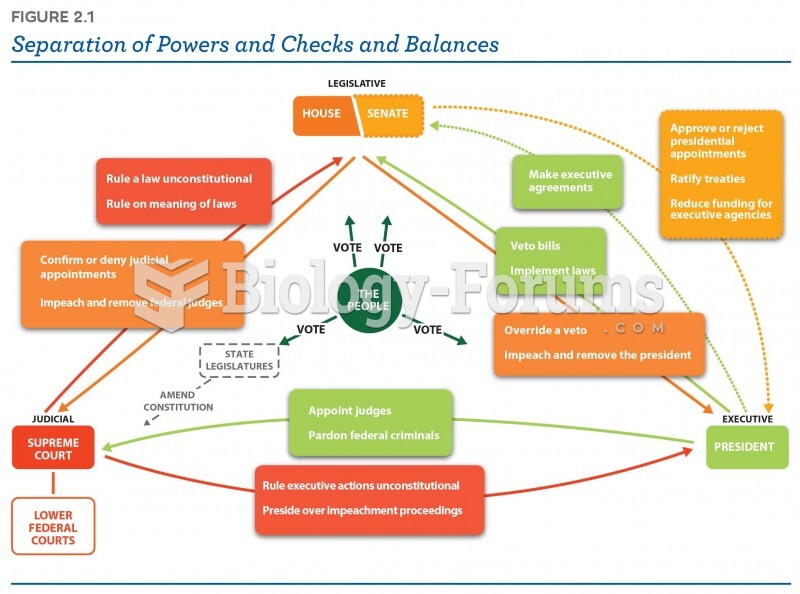|
|
|
Cyanide works by making the human body unable to use oxygen.
Earwax has antimicrobial properties that reduce the viability of bacteria and fungus in the human ear.
The first oncogene was discovered in 1970 and was termed SRC (pronounced "SARK").
As many as 20% of Americans have been infected by the fungus known as Histoplasmosis. While most people are asymptomatic or only have slight symptoms, infection can progress to a rapid and potentially fatal superinfection.
People who have myopia, or nearsightedness, are not able to see objects at a distance but only up close. It occurs when the cornea is either curved too steeply, the eye is too long, or both. This condition is progressive and worsens with time. More than 100 million people in the United States are nearsighted, but only 20% of those are born with the condition. Diet, eye exercise, drug therapy, and corrective lenses can all help manage nearsightedness.
 This engraving of the Boston Massacre (1770) became the most reprinted depiction of the event, and p
This engraving of the Boston Massacre (1770) became the most reprinted depiction of the event, and p
 In the summer of 1793, a yellow fever epidemic struck Philadelphia, killing nearly 4,000. Tens of th
In the summer of 1793, a yellow fever epidemic struck Philadelphia, killing nearly 4,000. Tens of th





